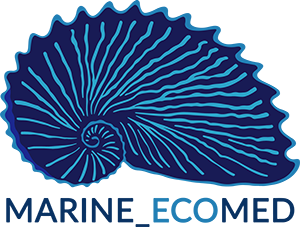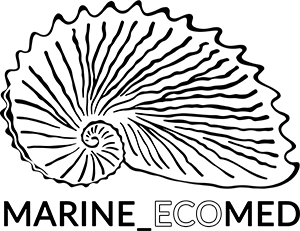During the workshop students with different backgrounds from the different partner universities worked in groups on a real case study on the local marine and coastal area of the workshop site.
This represented the opportunity for participants to apply the knowledge acquired during the two previous modules and to benefit from frontal classes taught by the experts involved in the program, who shared their professional experience in planning and management of marine and coastal areas and provide support to students in the development of their work.
The aim of the workshop was to provide participants with a clear understanding of planning and management strategies, available communication strategies and related challenges, enhancing them to work on existing issues on a real case, with real data, in a real political and administrative context, with real stakeholders and workers.
Team work: during the workshop participants worked in groups. Each group was composed by participants of different nationalities, background (planning and oceanography), skills (e.g. GIS, graphic tools) in order to simulate real-life multidisciplinary team work.
Contents: During the workshop, research and campaign experiences selected by the partnership members, were presented to students by the experts involved in the mobility program.
The case studies selected were located on the coastal-marine geographical context of the hosting university. Students were provided with data and information on the case study to support the development of their work. A field trip was organized in the coastal area adopted as case study to foster understanding on main specificities and challenges to the planning and management of the case study local context.
The workshop was also an occasion to foster students understanding of ecosystem services by involving them in a role-playing simulation, the Marine ecosystem services game.
Work presentation: in order to allow students to get a better understanding of real dynamics in planning and management their work was presented at a public event organized within the project framework where local experts and stakeholders will be invited to give a very important feedback to workshop results.
Evaluation: Examination for this module was based on active participation to the workshop (30%), problem-based activities consisting in the oral presentation of a potential strategy developed for the “marine planning, management and communication” of a real case study (30%), writing of a report on a potential strategy developed for the “marine planning, management and communication” of a real case study (40%).
At the end of the workshop a joint certificate was issued to participants by the three universities involved.


